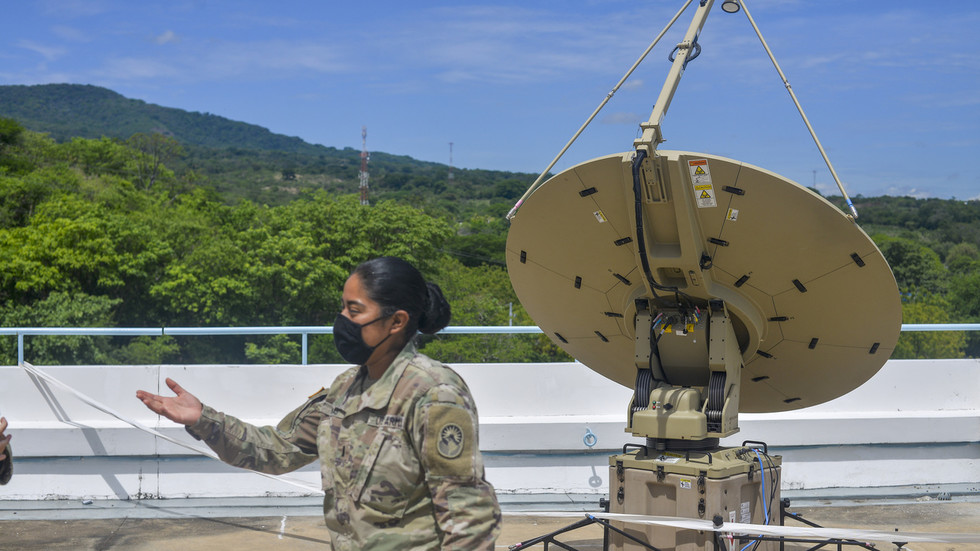Bloomberg
Washington intends to develop its ability to disable other states’ satellites via ground-based jammers
Washington is close to boosting its offensive counterspace capability with new ground-based jammers designed to temporarily disable satellites deployed by Moscow and Beijing, Bloomberg wrote on Friday, citing sources in the US Space Force (USSF).
Having already tested the new systems earlier this year, the US will deploy 11 of 24 Remote Modular Terminal jammers in the coming months, the USSF told the newspaper. All are expected to be in place by the end of the year. The jammers aren’t meant to protect US satellites from jamming; rather, they aim to “counter adversary satellite communications capabilities,” the USSF has said.
The Space Force had previously described the terminals as “small, transportable, and low-cost satellite communications jammers,” designed “using commercial off-the-shelf components.”
The jammers will augment other electronic warfare systems such as the already deployed and much larger Counter Communications System and the medium-sized Meadowlands system by offering a more “proliferated, remotely controlled, and relatively relocatable capability,” according to the USSF. They noted the Meadowlands system has encountered development issues, delaying its rollout until at least October, two years later than planned.
READ MORE: US Congress concerned Russia could be sharing insights on arms with China
These systems will not be “defensive weapons” but are intended to “attack rival capabilities,” said Victoria Samson, chief director of space security and stability at the Secure World Foundation. She classified it as an “offensive counterspace capability,” claiming that the system will be “reversible, temporary, non-escalatory, and allow for plausible deniability in terms of who the instigator is.”.....more below
https://www.rt.com/news/601374-us-jamming-chinese-russian-satellites/
Ghana is interested in purchasing a floating nuclear power plant from Russia, Ghanaian Ambassador to Russian Koma Steem Jehu-Appiah told Sputnik.
"I know that our minister of energy was here last year and signed a corresponding agreement. I think this is innovative, and in a conversation with the minister of energy, he said that the country is interested.
So, Ghana could purchase such a nuclear power plant," the diplomat said when asked about the possibility of Ghana purchasing a floating nuclear power plant.
Russia and Ghana began cooperation in the field of nuclear energy after signing an intergovernmental agreement in 2015.
The agreement outlined plans for joint work in the areas of training specialists, building nuclear power plants and related infrastructure, and providing maintenance services. In October 2023, representatives of Rosatom met with the Ghanaian Ministry of Energy in Cape Town. At the meeting, Russia proposed using floating nuclear power plants to supply power to ...














